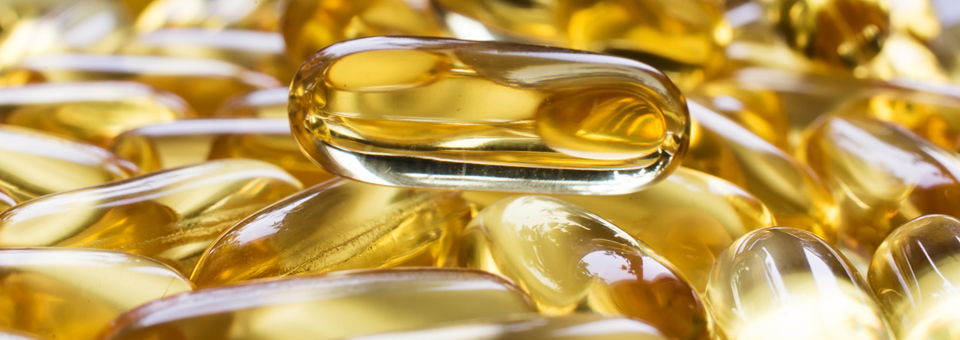I’ve been warning my patients and readers like you about Big Pharma’s cholesterol scam for more than two decades.
But my message continues to get lost in the unrelenting Big Lie presented by so-called experts in the FDA, AHA, and USDA.
Now, a new study confirms — once again — that there is no link whatsoever between what’s known as “bad” cholesterol and death as a result of heart disease in individuals over 60 years of age.1
In fact, the study found that 92% of people with high cholesterol actually lived longer.
You see, there is no such thing as “good” or “bad” cholesterol. You need both to stay healthy.
Without cholesterol, you wouldn’t be able to produce testosterone, estrogen, progesterone, or cortisol. It’s a key building block for all of your hormones.
The real cause of heart disease is inflammation due largely in part to our modern dietary imbalance of pro-inflammatory omega-6 fatty acids to anti-inflammatory omega-3s.
Just like the statins scam, this imbalance is driven by the same false idea — pushed for 70 years by the American Heart Association (AHA) — that animal fats raise cholesterol and lead to heart disease.
This has led to the biggest dietary disaster of the 20th and 21st centuries. And it’s no surprise that heart disease has remained the #1 diagnosed disease in America and the #1 cause of death.
You see, for most of the time humans have been on Earth, we ate foods that had omega-6s and omega-3s in the ratio of about 2:1 — or sometimes even 1:1.
But in our modern world, thanks to the bad advice of the AHA, the animal fats of our parents’ and grandparents’ generations have been replaced with cheap grains and vegetable oils like canola. And now our omega-6/omega-3 ratio has been
skewed to as much as 20:1.That means the average American now eats 10 times too many omega-6 fatty acids.
Sure, this has lowered LDL cholesterol levels. But research now confirms that the more LDL is lowered, the greater the risk of heart attacks and strokes.
The recent Minnesota Coronary Experiment found that replacing saturated fat with vegetable oil increased mortality and cardiovascular events, even though total cholesterol was lowered by 13.8%.2
The researchers also discovered that for each 30 mg/dL reduction in serum cholesterol, the death risk surged by 22%.
Lower Your Heart Attack Risk The RIGHT Way
I work with my patients to get them off statins. Here’s what I recommend they use instead to protect their heart and lower the risk of heart disease:
- Fix your omega ratio. Rebalance your omega-6:omega-3 ratio by reducing or eliminating the use of corn oil, canola oil, soy oil, and margarine.Instead, cook with high-quality extra virgin olive oil, coconut or avocado oil, or full-fat organic butter from grass-fed cows. Processed and prepackaged foods almost always contain one of the omega-6 vegetable oils, so avoid them as much as possible.
- Take the right omega-3. I’m talking about docosahexaenoic acid (DHA), which studies prove is a potent defender from heart disease.3 DHA eliminates the need for statins. It’s also one of the best ways to treat poor circulation and stabilize blood pressure.Get between 600 mg and 1,000 of DHA, as well as 60 mg of the EPA form of omega-3, in a combination of squid and krill oil. And make sure you take it with meals so it can be digested properly.
- Be sure to include vitamin K2. This nutrient is another powerful anti-inflammatory heart defender. Recent research on vitamin K2 shows that it prevents inflammation by inhibiting pro-inflammatory markers produced by white blood cells.4 Sadly, most people today are deficient in K2. Some estimates put the number as high as 98%!Vitamin K2 comes in several different forms, called menaquinones. Look for menaquinone-7, which is one of the most bioactive forms. Because it’s fat-soluble, take K2 with a meal to improve absorption. I recommend taking 90 mcg per day.
To Your Good Health,
![]()
Al Sears, MD, CNS
References:
1. DuBroff R, et al. “Hit or miss: the new cholesterol targets.” BMJ Evidence-Based Medicine. August 2020. doi:10.1136/ bmjebm-2020-111413.
2. Ramsden CE, et al. “Re-evaluation of the traditional diet-heart hypothesis: Analysis of recovered data from Minnesota Coronary Experiment (1968-73).” BMJ. 2016-04-12 22:34:54.
3. Bernstein A, et al ” A meta-analysis shows at docosahexaenoic acid… increases hdl-cholesterol … in persons without coronary heart disease.” J Nutr. 2012;142(1):99-104.
4. Maresz K et al. “New study shows evidence that MensaQ7 positively impacts inflammation.” 13th international Nutrition and Diagnostic Conference. INDC 2013.

